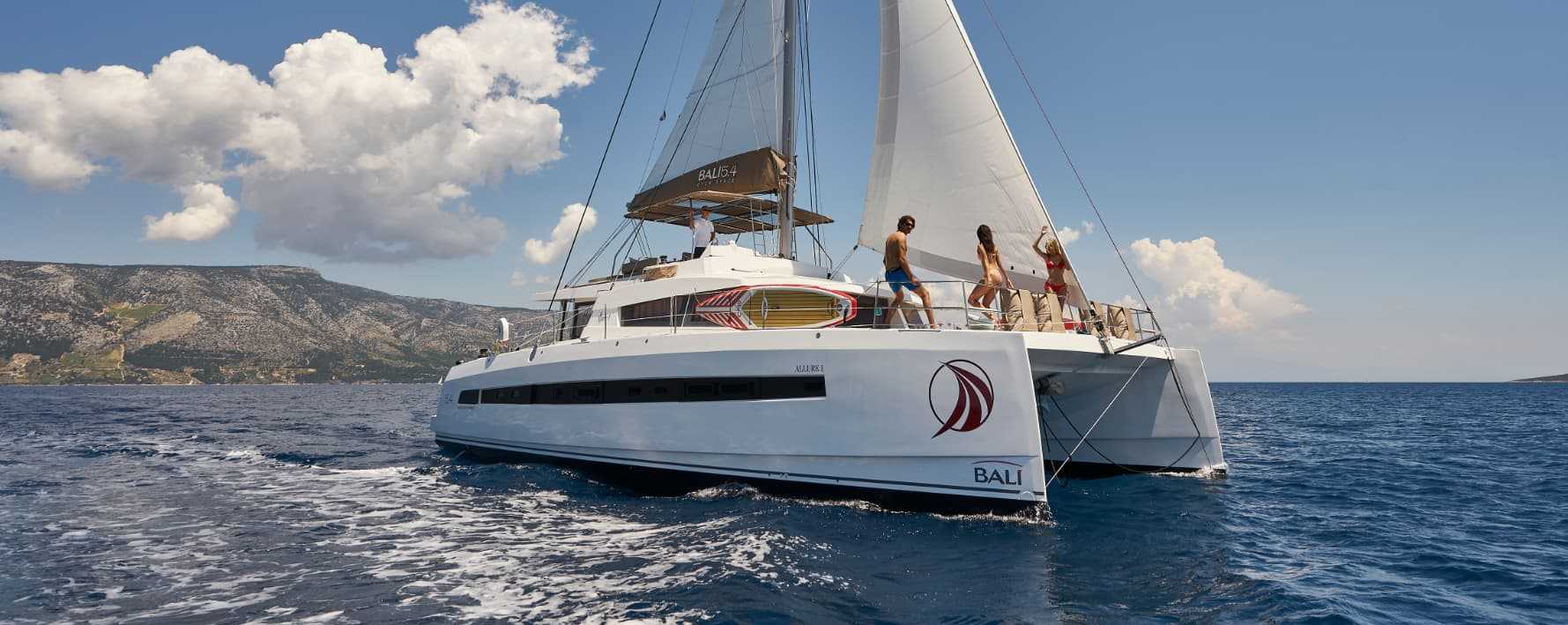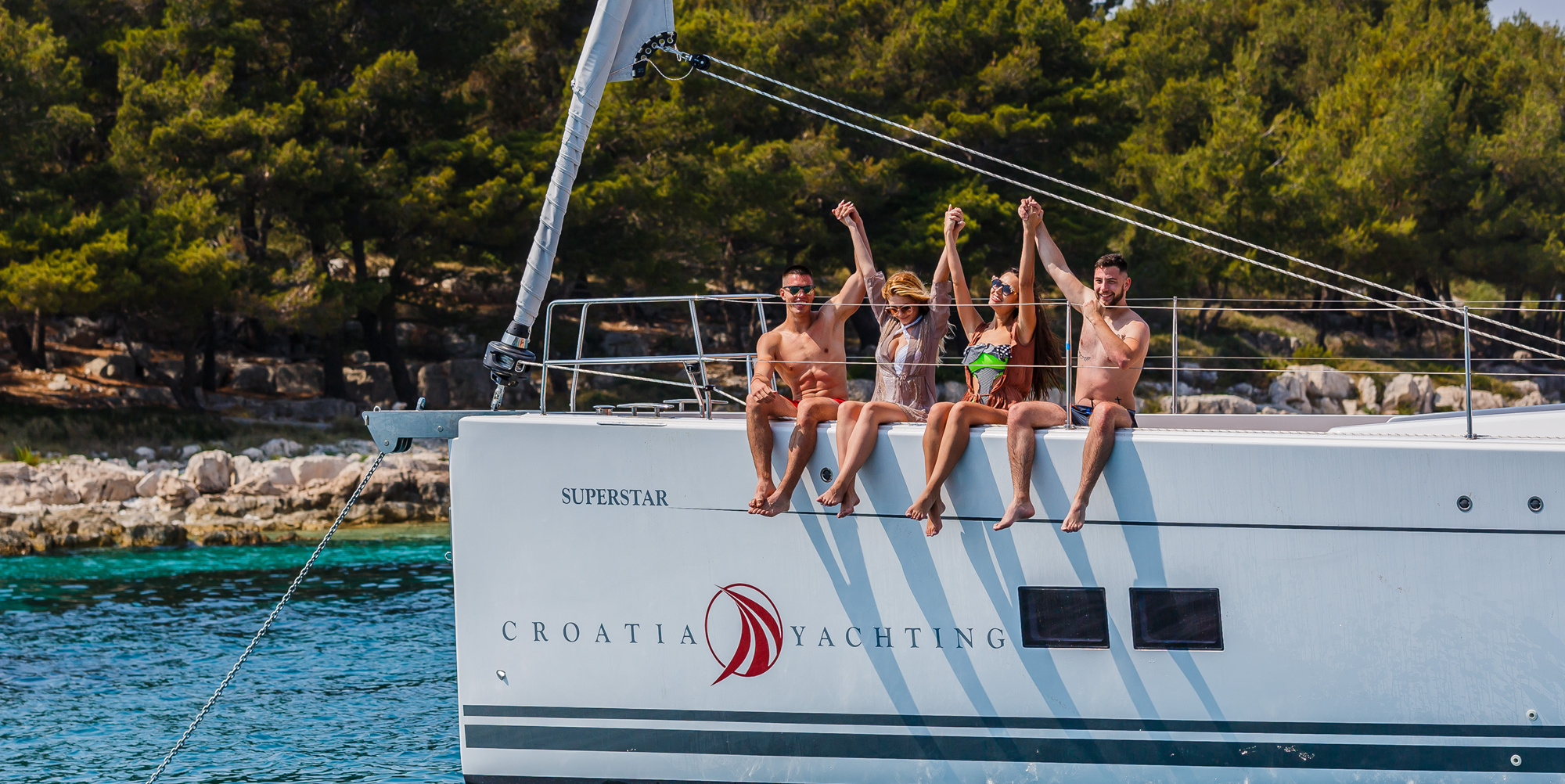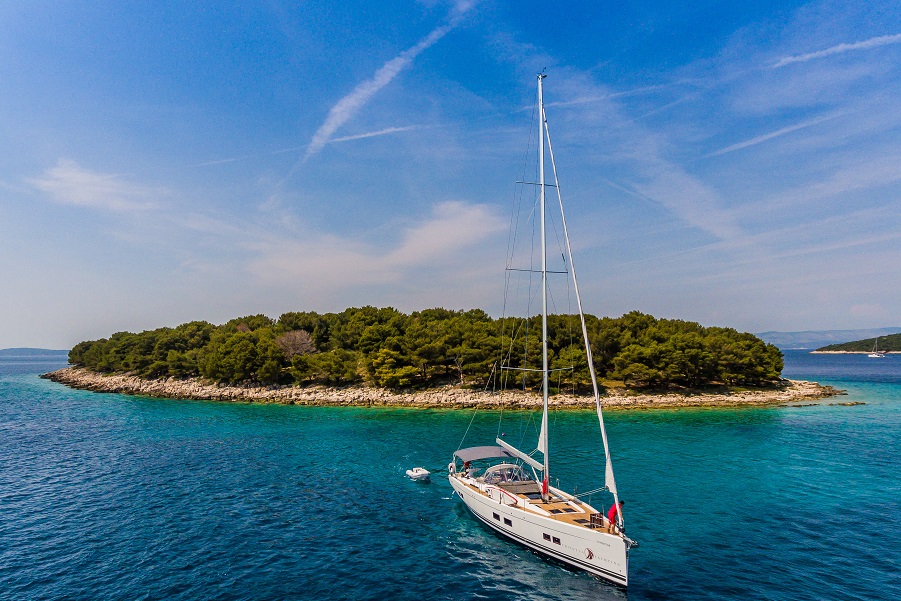Rest as Wind in the Sails: Tips from Psychologist Tina Panžić

Sailing the vast seas, every experienced sailor knows that true rest is not just a break, but fuel for new achievements and safer navigation through life. This perspective, grounded in both science and everyday experience, is presented by Tina Panžić, a graduate psychologist and psychotherapist, whose insights and advice are increasingly sought after among professionals and sailing enthusiasts.
Drawing from her extensive experience working with people, Panžić explains how wisely chosen rest strengthens productivity, motivation, and creativity.
In her latest article, Tina Panžić explains how important it is to "anchor" not only the boat but also the mind. She provides clear reasons why mental rest is necessary—to regain strength, broaden perspective, and refresh the approach to challenges, whether on turbulent seas or in everyday life on land.
Charter sailors will find in her words a wind in their sails—a call to seriously consider the importance of breaks and self-care, just as they do with their equipment and boats.

Is Rest a Luxury or a Necessary Part of Mental Health?
Since the study of human behavior began, it has been emphasized that we have a natural need for withdrawal and rest. Just like in the animal world, to survive and function, it is necessary to rest daily, weekly, and yearly.
In today’s world of professional and business demands that sustain basic existence, we may ask ourselves how rest helps us here. Indeed, for both cognitive and physical activity, rest is essential to increase the organism's capacity and productivity. Cognitively, we function in a way where the brain connects information and arrives at solutions predictively based on prior knowledge, experience, and problem-solving methods.
At the same time, our functioning holds both great strength in the form of confidence and self-assurance, and a significant weakness. This weakness manifests as a narrowed predictive information processing mode that leads to approaching problems usually in similar ways, using known sources of solutions. Furthermore, the more exhausted the organism, the narrower the radius of cognitive reasoning and data perception becomes.
The more tired we are, the less we see the forest for the trees.
How Does Rest Help Us Return to Balance and Boost Productivity?
Rest is necessary for the organism to return to balance in every aspect, release its naturally available capacities, and be ready for meaningful interaction with reality and the environment. This means that stepping back from everyday life allows a person not only to see the tree but to become aware of the forest in which it stands.
In the business context, rest helps reduce feelings of overload and diminishes the perception of powerlessness or heaviness in work situations. It enables us to approach tasks with an open mind, free from the burden of previous perceptions. A person returning from rest approaches business tasks more motivated, without emotional baggage, and cognitively unburdened by prior approaches — ready to process new data and problems and seek solutions from a broader range of knowledge and methods.
Simply put, just as it is necessary to rest a muscle for further growth, it is necessary to rest the brain for continued productivity. A rested person will find solutions much faster and more efficiently than an overburdened person who mostly repeats old proposals for potential solutions.

What Is Considered the Best Way to Rest?
Of course, people understand rest differently, which raises the question: what is considered the best rest? Some withdraw from work and daily life by staying home watching TV shows or focusing on household chores. These are not the most adequate forms of rest because watching TV often artificially directs the organism’s cognition toward the content being viewed, and chores impose the organism to remain engaged in duties and plans.
One of the most functional kinds of rest would be to allow the organism to be in contact with its natural needs as much as possible — sleeping when tired, eating when hungry, activating oneself when the environment or inner need requires it, and so on. This way of functioning is known as living in the moment, here and now.
This kind of presence rests the organism because we have everything we need to function naturally in our environment; the problem is that we usually function according to imposed rhythms and rules. Presence in the here and now is most easily achieved during time spent in nature. We feel free, relaxed, yet alert to stimuli coming from the environment — sounds, sights, sensations.
Unfortunately, people increasingly need reminders even in nature to stop and allow the organism to feel and perceive where it is and how it will behave. Nature functions in perfect balance of behavior, stimuli, and reactions, which consequently encourages us to be more present — or, more natural.
Sailing is a perfect example of functioning in harmony with nature. The sailboat follows the direction and strength of the wind; there is no hurry, no exact expectation — only magnificent presence.
How Does Being Fully Present Enable Greater Achievement?
When we truly feel what it means to live, to be present, without fears, cognitive limitations, or emotional baggage from the past, we are ready for the greatest achievements because we are fully present and absolutely open to productivity.
In conclusion, rest is not a luxury or an addition but an imperative need — just like breathing — to be present, real, and productive.

How to Truly Rest on a Chartered Boat
Chartering a boat is not just a luxury trip—it’s an opportunity for a complete reset of mind and body. To get the most from your sailing experience, it helps to know how to "switch off" at sea and return feeling refreshed, inspired, and more productive.
1. Plan but Stay Flexible
Create a few potential sailing routes and activities, but leave room for improvisation. Wind and sea will often dictate the day, so stay relaxed and let nature take the lead.
2. Adapt the Space to Yourself
Comfort is different at sea than in a hotel. Bring your favorite pillow, cozy blanket, or a book. Small touches like ambient lighting and soft music make a big difference during your sailing holiday.
3. Find Time for Your Ritual
-
Morning stretching or yoga on deck with the sound of waves
-
Meditation or breathing exercises anchored in a quiet cove
-
Journaling, sketching, or just lounging at the bow to let thoughts flow
4. Respect Your Own and Others’ Boundaries
In a shared space like a boat, balance is everything. Define quiet hours or private time to relax without interruption—even if just to gaze at the stars or read.
5. Use the Sea as a Source of Health
Swimming, snorkeling, shore walks, or floating in the water all boost energy and mental clarity. The sea naturally recharges the body and mind.

6. Prepare Conditions for Deep Sleep
Pick a quiet cabin away from the engine. Use eye masks, earplugs, and your favorite pajamas for comfort. Let the rhythm of the sea lull you into deep rest.
7. Enjoy Peaceful Moments
Sometimes all you need is to lean back, close your eyes, and listen to the sea and wind. These are the moments where real recovery happens.
Rest: An Essential, Not an Option
If you’ve ever wanted to press "pause" on life, you’re not alone—and you’re not weak. Rest is not a trend or a wellness buzzword. According to psychologist Tina Panžić, it's a fundamental human need, especially during sailing holidays or periods of intense work.
Panžić explains that even a short break boosts cognitive performance, emotional resilience, and restores our inner compass. Without rest, we lose clarity, block creativity, and repeat ineffective behaviors.
Just like muscles need recovery, our brain needs rest to be productive and inspired. It's more than a "fresh start"—it's a scientific necessity for long-term success, whether you're sailing the Adriatic or navigating your everyday world.
So recharge, reset, and return with open sails. Because without rest, even the most advanced charter sailing boat won't get far.
















